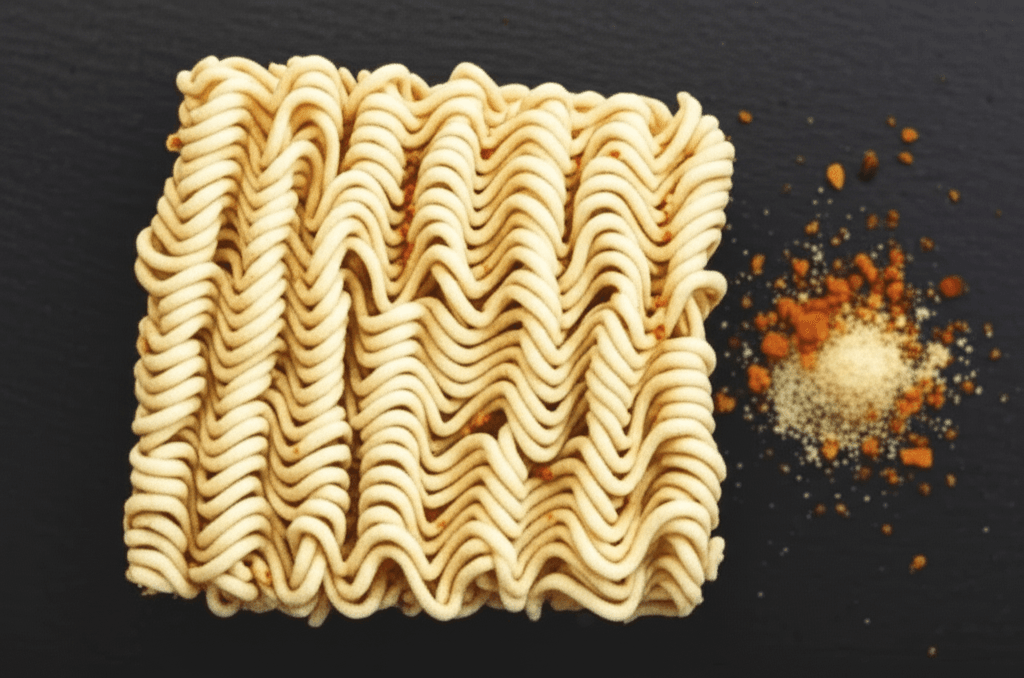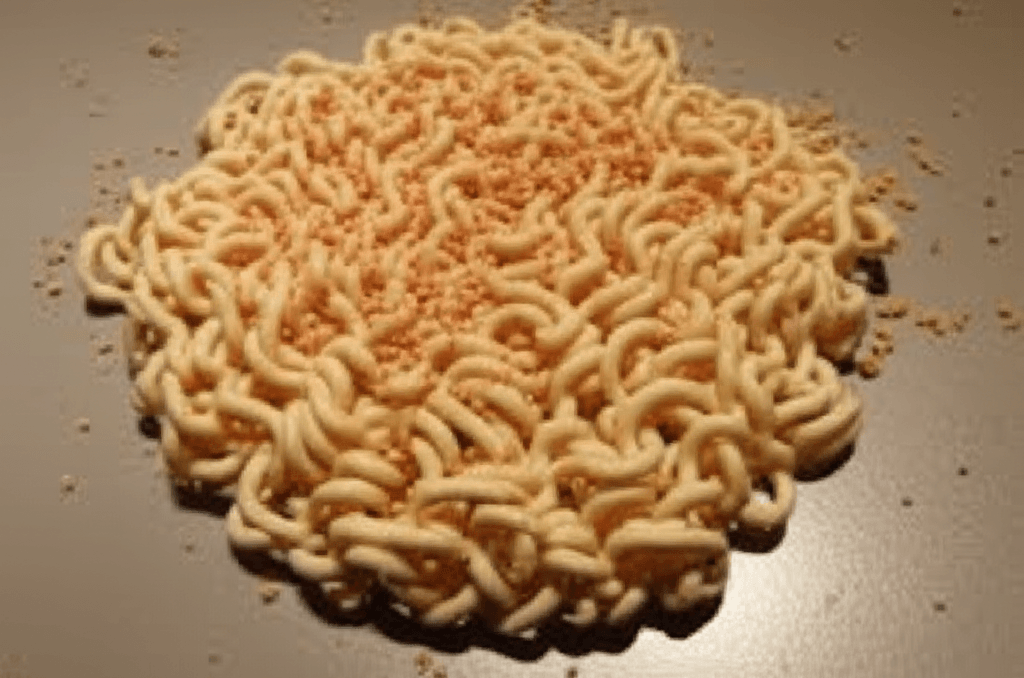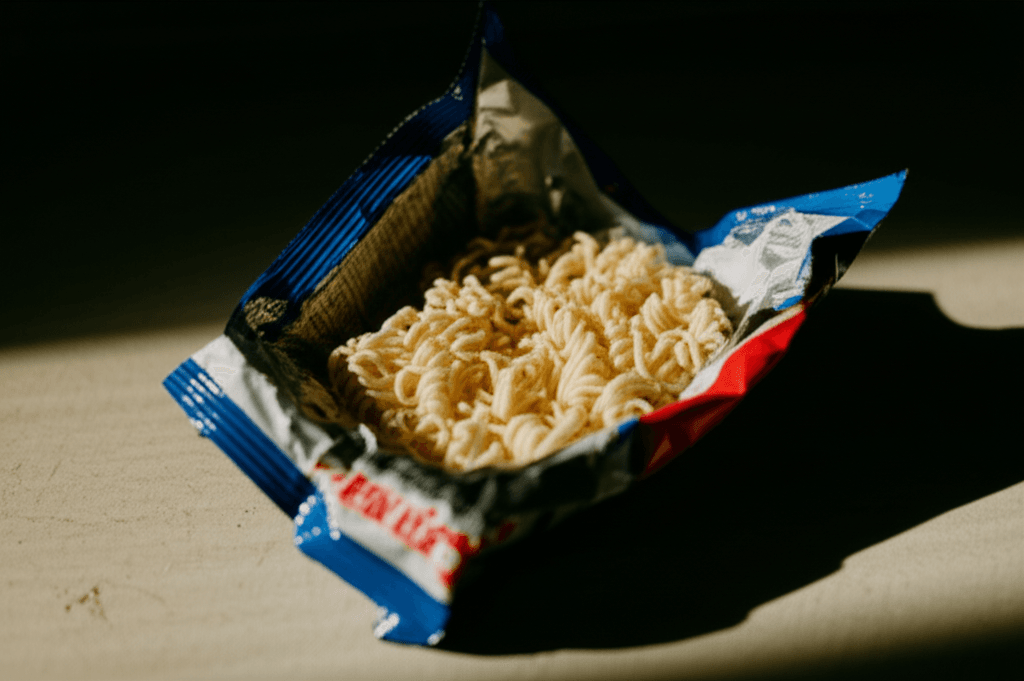A 13-year-old boy in Cairo, Egypt, tragically died after reportedly consuming three packets of uncooked instant noodles, an incident that has sparked urgent discussions about food safety and the potential dangers of popular, yet improperly consumed, processed foods. The teenager, identified as Hamza, experienced severe abdominal pain, vomiting, and sweating just 30 minutes after eating the dry noodles on August 16.

Tragic Incident in Cairo
Hamza had returned home from an evening prayer and Quran memorization class when he consumed three packets of the popular Indomie instant noodles in their uncooked form. His sudden and severe symptoms prompted his family to rush him to the hospital, where doctors suspected poisoning and instructed them to take him to a toxicology center. Tragically, Hamza passed away in the ambulance before reaching the center, despite resuscitation efforts.
Initial investigations included questioning the shop owner who sold the noodles and testing product samples. However, later reports and an autopsy confirmed that the noodles were not contaminated or laced. Instead, the cause of death was attributed to acute intestinal problems, specifically digestive obstruction, likely triggered by the large quantity of dry noodles Hamza had eaten at once. This heartbreaking event has led to renewed calls for stricter oversight on processed foods and their additives in Egypt and across the Arab world.

The “Eat Ramen Raw” Trend and Its Perils
The consumption of raw instant noodles has gained popularity, particularly among teenagers and children, partly due to viral social media trends like the “Eat Ramen Raw” challenge on platforms such as TikTok. These videos, amassing millions of views, showcase individuals eating dry instant noodles as a snack. While instant noodles are pre-cooked during manufacturing (usually by deep-frying or baking) and then dried, making them not truly “raw” in the sense of being uncooked from scratch, consuming them in their hard, dry state still presents significant health risks.

Hidden Dangers of Consuming Raw Instant Noodles
Experts and medical professionals caution against eating instant noodles without proper preparation due to several potential health hazards.
Intestinal Blockages and Dehydration
One of the most immediate and severe dangers of consuming dry instant noodles is the risk of intestinal obstruction. The hard, compacted nature of uncooked noodles makes them difficult for the digestive system to break down efficiently. When consumed in large quantities, especially without sufficient liquids, these dry noodles can swell and form a mass in the digestive tract, potentially leading to blockages. Symptoms of intestinal obstruction can include intense abdominal pain, nausea, vomiting, and abdominal distension, requiring immediate medical attention and potentially surgical intervention. Furthermore, the dry nature of the noodles can contribute to severe dehydration if not accompanied by adequate fluid intake.
Nutritional Concerns and Processed Food Risks
Beyond the immediate physical dangers of raw consumption, instant noodles, even when prepared as intended, are not considered a healthy dietary staple. They are often high in sodium, fat, and calories, yet lack essential nutrients such as protein, fiber, and vitamins crucial for a child’s growth and overall health.
- High Sodium Content: A single packet of instant noodles can contain up to 1330 mg of sodium, significantly high compared to the World Health Organization’s (WHO) daily recommended limit of 2000 mg. Excessive sodium intake can lead to high blood pressure and other cardiovascular issues over time.
- Lack of Dietary Fiber: Instant noodles are typically made from refined wheat rather than whole grains, providing little to no dietary fiber. Fiber is essential for healthy digestion and preventing issues like constipation.
- Harmful Chemicals and Additives: Commercial instant noodles may contain preservatives, flavor enhancers like Monosodium Glutamate (MSG), and other chemicals. While MSG is generally recognized as safe, concerns about its impact on brain health, particularly in young children, have been raised. Some sources also mention the presence of plasticizers and dioxins, increasing the risk of cancer with long-term accumulation.
- Choking Hazard: For younger children, instant noodles, both cooked and uncooked, can pose a choking hazard due to their texture and length. It is crucial for food to be prepared to the right shape, size, and texture for a child’s developmental stage.

The Importance of Proper Preparation
The tragic incident in Cairo underscores the critical importance of preparing instant noodles according to the manufacturer’s instructions, which typically involve boiling them in water. This process softens the noodles, making them easier to digest and reducing the risk of intestinal issues.
Parents and caregivers should:
- Always supervise children while they are eating.
- Ensure that instant noodles are cooked thoroughly to a soft texture.
- Consider boiling noodles separately and draining the water to reduce the amount of preservative oil and sodium from the seasoning packet, then creating homemade seasonings.
- Supplement instant noodle meals with vegetables, protein, and other nutritious ingredients to provide a more balanced diet.

Expert Advice on Food Safety for Children
Healthcare professionals consistently advise against relying on instant noodles as a staple food for children due to their limited nutritional value and potential health risks. For busy parents, while instant noodles offer convenience, prioritizing nutrient-rich alternatives or enhancing instant noodles with fresh ingredients is recommended.
The case of Hamza serves as a somber reminder of the hidden dangers associated with certain food consumption habits, especially those influenced by social media trends. Awareness and adherence to proper food preparation are paramount to ensuring the safety and well-being of children.







